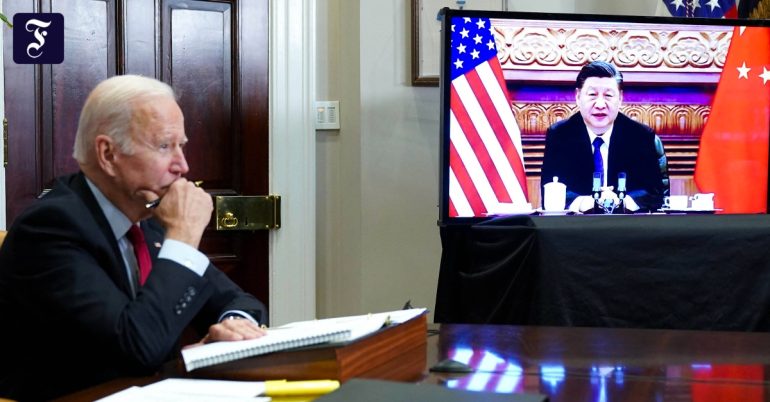YouS President Joe Biden China has signed a law banning the import of many products from the Xinjiang region. The law, signed by the US president on Thursday, bans products made in whole or in part in this Chinese province – unless companies can prove that the products were not made using forced labor, which is considered difficult. Is.
The law’s background is a dispute between Washington and Beijing over alleged human rights violations against the predominantly Muslim Uighur minority in western China. China denies US allegations that the provincial government is “genocide” on minorities. Among other things, China is accused of forcing thousands of Uighurs to be placed under house arrest in re-education camps and forced to work.
New US law requires that imports of three products be specifically controlled: cotton, for which Xinjiang is one of the world’s largest producers; Tomatoes, which are produced in large quantities in the region; and polysilicon, a material used in the manufacture of solar modules. This is the first import ban of its kind in the world.
account for the responsibilities
US Secretary of State Antony Blinken said the law “gives the government new tools to prevent the importation of forced labor products into Xinjiang and holds the individuals and organizations behind these abuses accountable”. He again called on the Chinese government to end “genocide and crimes against humanity”.
The law goes back to an initiative of the US Parliament. Last week the Senate voted unanimously in rare unity for an import ban. Previously, lobby groups of companies heavily dependent on imports from China tried to block the vote.
It was worth noting that Biden did not sign the law in front of the camera like his predecessor Donald Trump Other trade sanctions against China. Instead, his office just posted a picture on Twitter.
Don’t let the thread break the conversation
Like Trump, Biden sees China as America’s biggest rival around the world. However, unlike Republicans, Democrats do not want to break the thread of negotiations and rely on limited cooperation, for example in the fight against climate change.
The law could become a major problem for US companies importing parts from China – even if they don’t import directly from Xinjiang. For example, the chip maker got as Intel When he told his suppliers not to buy any more goods from the province.
This caused an uproar on Chinese Internet platforms. Intel tried to counter the public outcry with an apology published on the Chinese platform Weibo. In it the US company wrote: “Our original intention was to ensure compliance with US law”. Intel “apologizes for the problems caused by our respected Chinese customers, partners and the general public.”
The US government criticized the action on Thursday: “We also believe that American companies should not feel the need to apologize for campaigning for basic human rights or fighting against repression,” said Biden spokeswoman Jen Psaki. said.

Introvert. Proud beer specialist. Coffee geek. Typical thinker. Pop culture trailblazer. Music practitioner. Explorer.





